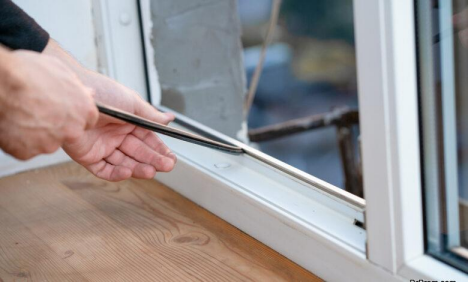Imagine this…

Jane Smith, a homeowner, has scheduled a windows and doors inspection for her property. She noticed some draft issues and difficulty in opening and closing some windows and doors. Concerned about potential energy loss and security risks, Jane seeks a thorough inspection to identify any problems and receive recommendations for necessary repairs or replacements. The inspection will focus on assessing the condition of the windows and doors, checking for proper sealing, inspecting hardware functionality, and evaluating overall security measures.
By scheduling a comprehensive windows and doors inspection for her property, Jane Smith is taking a proactive and smart step towards enhancing energy efficiency, improving security measures, and ensuring utmost comfort for her home and family.
What is Windows and Doors Inspection?

A Windows and Doors Inspection is a thorough examination of the windows and doors in a property to assess their condition, functionality, and overall performance. This type of inspection is often conducted by homeowners, property managers, or professional inspectors to identify any issues, potential problems, or areas in need of maintenance or repair.
During the inspection, various aspects are examined, including:
- Sealing and Weatherproofing: The inspection will check for gaps, cracks, or damage in the seals and weatherstripping around windows and doors. Proper sealing is essential to prevent air leaks, water infiltration, and energy loss.
- Window Frames and Sashes: The condition of the window frames and sashes is evaluated. Any signs of rot, decay, or damage will be noted.
- Glass Integrity: The glass in the windows is inspected for cracks, chips, or other damage that may compromise the window’s efficiency and safety.
- Hardware Functionality: The functionality of locks, handles, hinges, and other hardware components is checked to ensure that it can be securely opened, closed, and locked.
- Energy Efficiency: The inspection may include an assessment of the energy efficiency of windows and doors, looking for features like double glazing or Low-E coatings.
- Security Measures: The inspector will examine the security features of doors and windows to determine if they provide adequate protection against potential intruders.
- Operation and Movement: Windows and doors are tested to ensure they open, close, and operate smoothly without sticking or excessive resistance.
- Visible Damage or Wear: The inspection will note any visible signs of damage, wear, or deterioration on the windows and doors.
- Compliance with Building Codes: The inspector may check if the windows and doors meet local building codes and safety standards.
- Aesthetics: While not a primary concern for safety and functionality, the inspector may comment on the overall appearance and aesthetics of the windows and doors.
After the inspection, the homeowner or client will receive a report detailing the findings and recommendations. Based on the report, they can decide on necessary repairs, maintenance, or potential replacements to ensure that it is in optimal condition, providing energy efficiency, security, and comfort to the property.
What you should do in a windows and doors inspection?
Conducting a thorough inspection is important to ensure their proper functionality, energy efficiency, and overall security. Here’s a step-by-step guide on what to do during a windows and doors inspection:
Exterior Inspection:
- Check for any visible damage to the frames, sashes, and door panels, such as cracks, warping, or rot.
- Inspect the weatherstripping around windows and doors for signs of wear or damage. This is essential for energy efficiency and preventing drafts.
- Look for gaps or openings between the frames and the walls, as these can lead to air leakage and water infiltration.
Interior Inspection:
- Open and close each window and door to ensure they operate smoothly. Pay attention to any sticking, grinding, or difficulty in movement, which could indicate issues with the hardware or alignment.
- Check the locks and latches to ensure they are functioning correctly, providing proper security.
- Inspect the window and door seals for any signs of deterioration or damage.
- Verify that the door swings or slides properly without dragging or rubbing against the floor or threshold.
Test for Air Leakage:
- On a windy day, hold a lit candle or a thin piece of tissue paper near the edges of the windows and doors. If there’s a noticeable flicker or movement, it indicates air leakage that needs to be addressed.
Check for Moisture or Water Damage:
- Look for any signs of water stains, mold, or mildew around the windows and doors, both on the interior and exterior surfaces. These could indicate water infiltration issues.
Inspect the Glass:
- Check for cracks, chips, or signs of damage on the glass panes. Damaged glass should be replaced to maintain safety and energy efficiency.
Assess Energy Efficiency:
- Evaluate its overall energy efficiency. Older windows and doors may have lower energy efficiency ratings, and it might be worth considering upgrading to more energy-efficient models.
Check Hardware and Accessories:
- Inspect the hardware, such as handles, knobs, hinges, and rollers, to ensure they are in good working condition.
Evaluate Safety Features:
- For doors, check if the door closers and automatic door stops (if present) are working correctly.
- Verify that windows have proper locking mechanisms.
Consider Noise Reduction:
- If noise is a concern, assess whether it provide adequate soundproofing.
Note Repairs and Maintenance:
If you’re unsure about performing a windows and doors inspection yourself, it’s a good idea to hire a professional to ensure a comprehensive assessment and accurate identification of any issues. Regular inspections can help prevent larger problems and extend the lifespan of your windows and doors.
Why do you need Windows and Doors Inspection?

A windows and doors inspection are essential for first-time property buyers for several reasons:
- Energy efficiency: Windows and doors are crucial components of a property’s thermal envelope, and they play a significant role in maintaining energy efficiency. A thorough inspection can identify issues like drafts, air leaks, or poorly insulated windows and doors, which can lead to increased utility costs.
- Security: Windows and doors are the primary entry points to a property and need to be secure to protect against break-ins and intrusions. An inspection can assess the security of locks, latches, and other hardware to ensure that they function correctly and provide adequate protection.
- Functionality: Windows and doors should open, close, and lock smoothly and easily. An inspection can identify issues like warping, misalignment, or damage that may impede their functionality, and suggest repairs or adjustments to improve their operation.
- Weather resistance: Windows and doors need to be able to withstand various weather conditions, such as wind, rain, and snow, without leaking or allowing water to infiltrate the property. An inspection can detect signs of water damage or leaks and recommend repairs or replacements as needed.
- Structural integrity: Windows and doors are integrated into the property’s structure and need to be in good condition to maintain the building’s overall integrity. An inspection can identify any issues with the window and door frames, sills, or surrounding areas that may compromise the structure.
- Aesthetic appeal: Windows and doors contribute to the overall appearance of a property. A thorough inspection can ensure that they are in good condition, both visually and functionally, enhancing the home’s curb appeal and value.
- Maintenance and repair planning: A windows and doors inspection can help you identify areas that may require ongoing maintenance or future repairs. This information is essential for budgeting and planning to keep your property in good condition.
- Resale value: Well-maintained windows and doors are essential for maintaining the property’s resale value. Identifying and addressing any issues during the inspection can help protect your investment and ensure that your home retains its value over time.
- Mortgage and insurance considerations: Some mortgage lenders and insurance providers may require a satisfactory windows and doors inspection before approving a loan or providing coverage. A thorough inspection can help you meet their requirements and avoid any delays in the home buying process.
- Peace of mind: A thorough windows and doors inspection provides peace of mind, knowing that you’ve assessed these critical components of your property and addressed any concerns. This confidence will allow you to enjoy your new home without worrying about potential window and door issues.
In summary, a windows and doors inspection is vital for first-time property buyers to make informed decisions, protect their investment, ensure the safety, energy efficiency, and aesthetics of their home, and achieve peace of mind in the home buying process.
Contact us to schedule your inspection and gain peace of mind!
Follow us!
For more details you may also follow our Facebook, Instagram, and YouTube!



